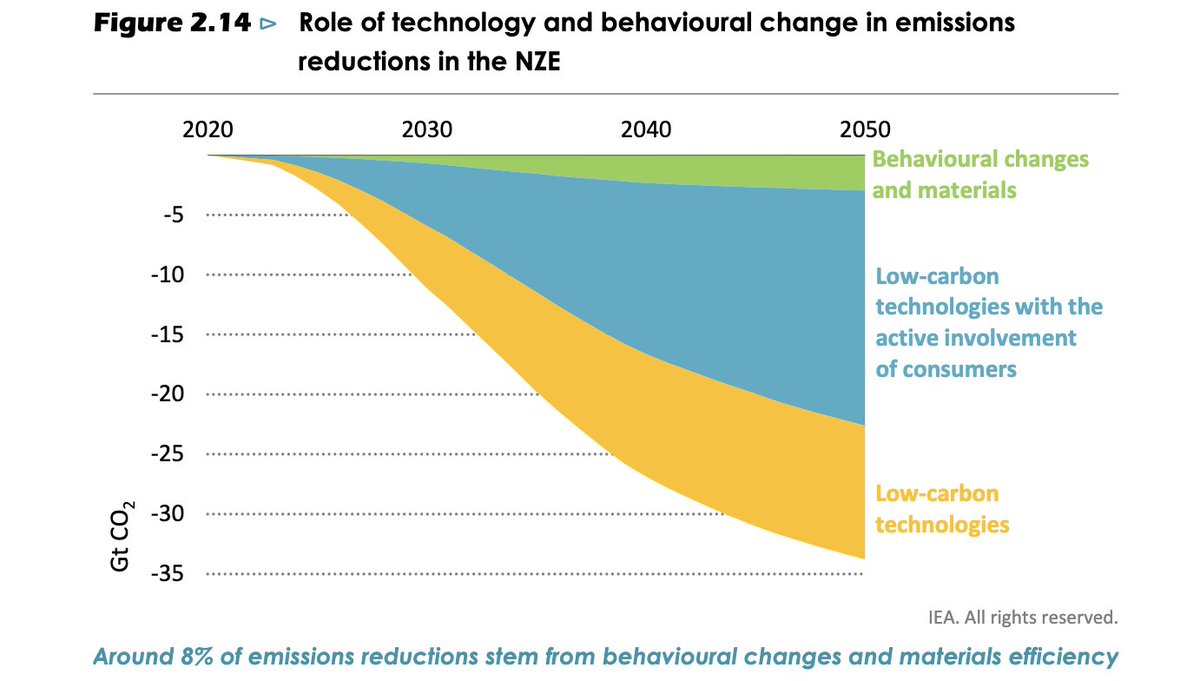
Contrary to Big Oil's climate change propaganda of individualized responsibility, the International Energy Agency's blockbuster 'Net Zero by 2050' report envisions less than 5% of emissions reductions coming from "behaviour changes". 1/n 

2/n: We should each do all we can, of course. Climate action should be BOTH/AND not EITHER/OR.
That means driving less, flying less, eating less meat.
BUT, it also means working collectively to confront the fossil fuel forces undermining systemic change.
That means driving less, flying less, eating less meat.
BUT, it also means working collectively to confront the fossil fuel forces undermining systemic change.

3/n: Refs ⬆️
For more on Big Oil's PR blame games, see my & @NaomiOreskes's new study:
For more on Big Oil's PR blame games, see my & @NaomiOreskes's new study:
https://twitter.com/GeoffreySupran/status/1392869611310354432?s=20
4/n: For more on how the systemic climate problem demands systemic solutions, see me and @_aploy here: mashable.com/article/how-yo…
5/n: See also @SamiGrover's inspiring article on "eco-hypocrisy": blog.usejournal.com/in-defense-of-…
6/n: For more on society's unequal degrees of complicity and accountability for the climate crisis, see @DoctorVive's brilliant essay on "Who is the we in ‘We are causing climate change’?" grist.org/article/who-is…
7/n: For the IEA's report, see here (and also these other relevant figures): iea.blob.core.windows.net/assets/20959e2… 



• • •
Missing some Tweet in this thread? You can try to
force a refresh








